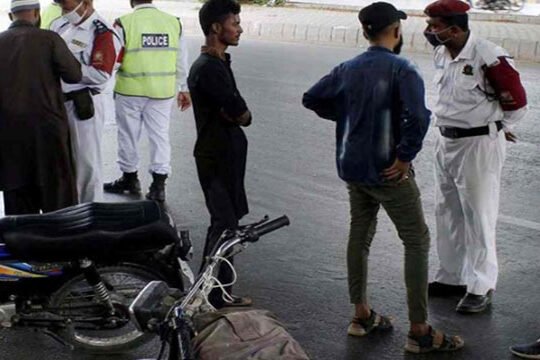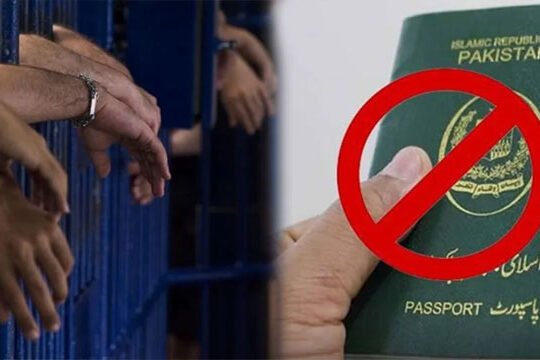The Ministry of National Health Services (NHS) announced on Monday that the mpox virus, recently declared a global emergency, is under control in Pakistan, with only two cases reported since the declaration. The ministry emphasized that stringent measures, including nationwide screening and isolation protocols, are in place to prevent the local transmission of the virus.
Nationwide Screening and Monitoring
Sajid Shah, the spokesperson for the NHS ministry, assured that the federal government is actively monitoring the situation. He highlighted the ongoing efforts to screen suspected patients across the country, stating that those displaying symptoms are being promptly isolated to prevent the spread of the virus.
"The federal government is rigorously overseeing the situation, with Health Secretary Nadeem Mehbub personally visiting key airports to ensure that the screening processes are thorough and effective,” Shah stated.
The Health Secretary has made visits to Islamabad International Airport, as well as Peshawar and Lahore airports, to inspect the screening arrangements for incoming passengers. During his visit to Lahore’s Allama Iqbal International Airport on Monday, the secretary was briefed by Border Health Services staff on the current measures in place to identify and manage suspected cases of mpox.
“The effectiveness of the surveillance and screening systems at airports is being meticulously ensured,” said Nadeem Mehbub. He further emphasized that the guidelines provided by the World Health Organization (WHO) are being strictly followed, contributing to Pakistan’s robust disease surveillance system.
WHO’s Global Strategic Preparedness and Response Plan
In a related development, the World Health Organization (WHO) has launched a global Strategic Preparedness and Response Plan aimed at stopping the human-to-human transmission of the mpox virus. This initiative comes after the WHO director-general declared a public health emergency of international concern on August 14.
The WHO’s new strategy, which spans from September 2024 to February 2025, seeks to mobilize $135 million in funding to support global, regional, and national efforts. The plan focuses on coordinated actions involving WHO member states, partners such as the Africa Centres for Disease Control and Prevention (Africa CDC), communities, researchers, and other stakeholders.
One of the key components of the plan is ‘strategic vaccination,’ targeting individuals at the highest risk, including close contacts of recent mpox cases and healthcare workers. This approach aims to interrupt transmission chains and curb the spread of the virus.
Global Cooperation and Local Vigilance
WHO Director-General Dr. Tedros Adhanom Ghebreyesus underscored the importance of a comprehensive and coordinated plan to combat the mpox outbreaks, particularly in the Democratic Republic of Congo and neighboring countries. He called for collaboration between international agencies, national and local partners, civil society, researchers, manufacturers, and WHO member states to effectively control and stop the virus.
Pakistan’s NHS ministry, aligned with WHO’s strategic goals, continues to monitor the situation daily, ensuring that the country’s disease surveillance system remains effective and responsive. The ministry’s proactive stance and the WHO’s global initiative both reflect a concerted effort to address the mpox threat at both local and international levels.
As the situation evolves, Pakistan remains vigilant, with ongoing screening and preventive measures designed to keep the mpox virus under control within its borders. The country’s health authorities are committed to maintaining strict adherence to WHO guidelines and ensuring the safety of the public through robust health interventions and continuous monitoring.












